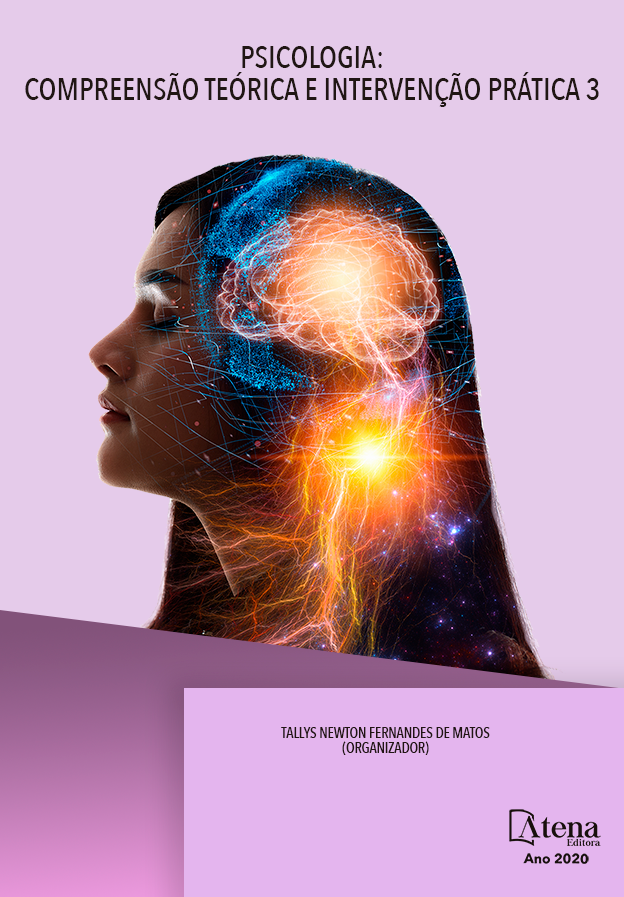
Perspectiva Psicanalítica da Anorexia Nervosa
Este estudo ocupa-se da perspectiva psicanalítica frente a Anorexia Nervosa, conhecida como um distúrbio do comportamento alimentar que tem como característica principal uma alteração em relação ao peso e a imagem corporal, acompanhada intimamente do medo excessivo de engordar. O objetivo do estudo é descrever a Anorexia Nervosa numa perspectiva psicanalítica. Para tanto, realizou-se pesquisa bibliográfica de cunho descritivo e abordagem qualitativa, revisando publicações cientificas no período dos últimos 10 anos, salvo os clássicos. Os resultados revelam discursões acerca da Anorexia Nervosa apresentar fatores psicológicos, o que a torna praticável, isto é, ela tem o propósito de realizar algo que não seja apenas o quadro de emagrecimento. Apontam também que, a etiologia desse caso ainda é desconhecida, porém autores tais como Sigmund Freud, Melanie Klein, Winnicott, Jaques Lacan, citam diversos fatores intervenientes e condições facilitadoras para o desenvolvimento de tal transtorno, a título de exemplo, a constituição subjetiva, protestos e impasses na separação com o Outro, bem como, a identificação com o objeto. Esse trabalho se norteou de estudos sobre a Anorexia Nervosa ao longo da história, o processo de constituição subjetiva e relações familiares, e a estruturação dos sintomas da Anorexia Nervosa. Entende-se que tais aspectos são fatores associados e determinantes quando relacionados a estruturação desse transtorno, sendo a identificação oriunda do Édipo. Por conseguinte, o sintoma da anorexia aponta a maneira do sujeito tentar lidar com a falta do Outro, buscando essa carência posteriormente em situações substitutivas à vivenciada enquanto criança.
Perspectiva Psicanalítica da Anorexia Nervosa
-
DOI: 10.22533/at.ed.6342007101
-
Palavras-chave: Anorexia Nervosa, constituição subjetiva, identificação, separação do Outro
-
Keywords: Anorexia Nervosa, subjective constitution, identification, separation from the other.
-
Abstract:
This study delas with the psychoanalytic perspective referring to Anorexia Nervosa, known as a disorder of eating behavior whose main characteristic is a change in weight and body image, closely associated whit the excessive fear of gaining weight. The aim of the study is to describe Anorexia Nervosa from a psychoanalytic perspective. For this purpose, a bibliographic research of a descriptive nature and qualitative approach was carried out, reviewing scientific publications in the period of the last 10 years, except for the classics. The results reveal discourses about Anorexia Nervosa presenting psychological factors, which makes it feasible, that is, it has the purpose of accomplishing something other than just the etiology of this case is still unknown, but authors such as Sigmund Freud, Melanie Klein, Winnicott, Jaques Lacan, mention several intervening factors and facilitating conditions for the development of such disorder, as na example, the subjective constitution, protests and impasses in the separation whith the other, as well as, the identification whit the object. This work was guided by studies on Anorexia Nervosa throughout history, the process of subjective constitution and Family relationships, and the structuring of symptoms os Anorexia Nervosa. It is understood that such aspects are associated and determining factors when related to the structuring of this disorder, whit the identification coming from oedipus. Consequently, the symptom of Anorexia points to the subject’s way of trying to deal with the lack of the other, seeking this lack later in situations that substitute the experience experienced as a child.
-
Número de páginas: 15
- Paula Lins Khoury
- Ana Karoline de Souza Pereira


